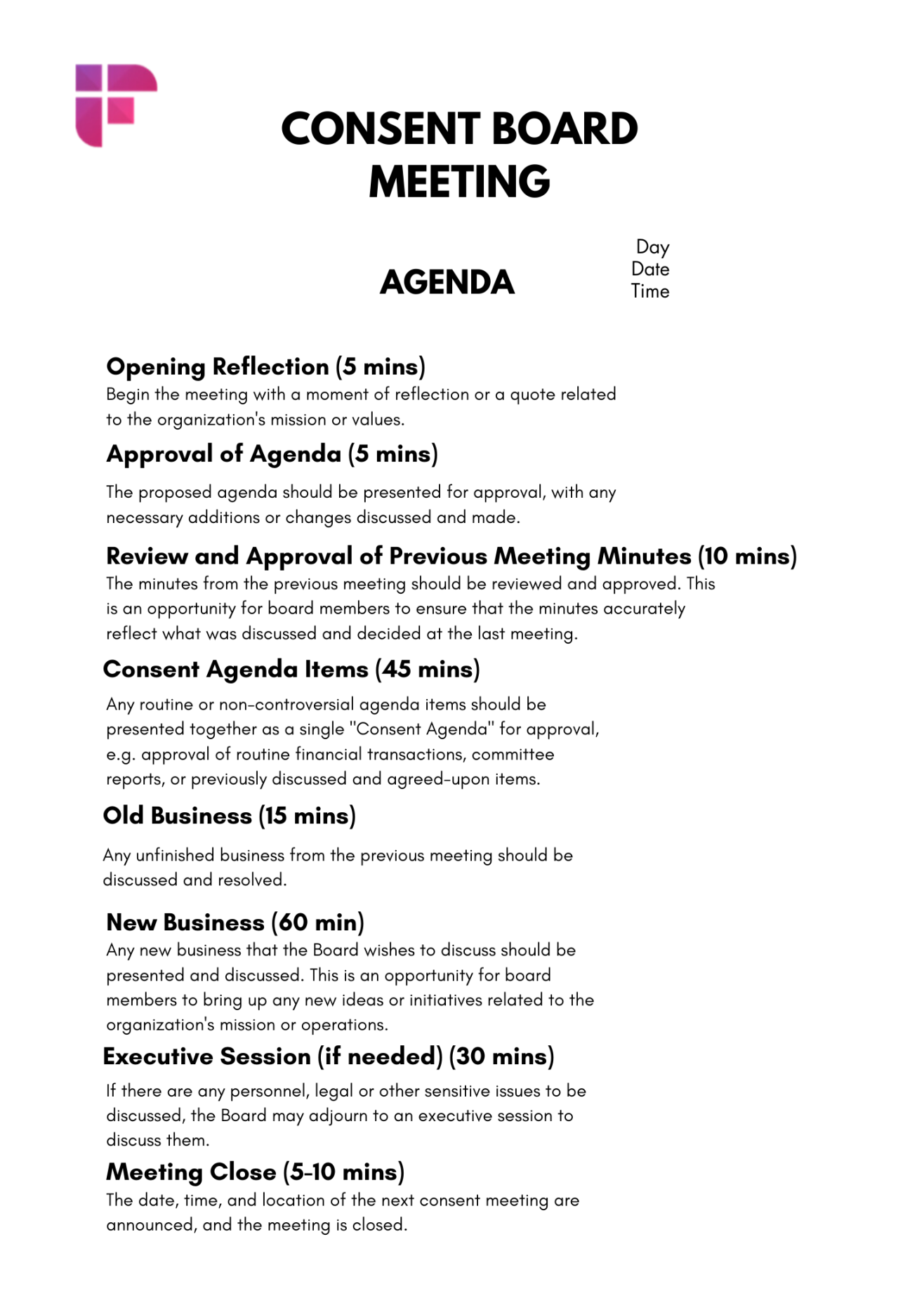A well-structured board meeting Agenda is essential for effective governance and decision-making in a non-profit organization. It provides a clear roadmap for the meeting, ensures that all relevant topics are discussed, and helps to maintain a productive and efficient atmosphere.
Key Elements of a Professional Non-Profit Board Meeting Agenda

1. Meeting Information
Date and Time: Clearly indicate the date and time of the meeting, including any time adjustments or alternative meeting options.
2. Approval of Minutes from Previous Meeting
Review and Discussion: Present the minutes from the previous board meeting for review and discussion.
3. Reports and Updates
Executive Director’s Report: Provide an overview of the organization’s recent activities, accomplishments, and challenges.
4. Old Business
Follow-up on Previous Decisions: Address any outstanding items or action items from the previous meeting.
5. New Business
Propose and Discuss New Initiatives: Introduce and discuss any new proposals or initiatives for the organization.
6. Financial Matters
Review Financial Statements: Present the organization’s financial statements, including the balance sheet, income statement, and cash flow statement.
7. Governance Matters
Review Board Policies: Discuss any updates or changes to board policies or procedures.
8. Executive Session
9. Adjournment
Design Considerations for a Professional Agenda
Clarity and Conciseness: Use clear and concise language to avoid confusion and ensure that all board members understand the agenda items.
By following these guidelines, you can create a professional and effective non-profit board meeting agenda that facilitates productive discussions, informed decision-making, and strong governance.